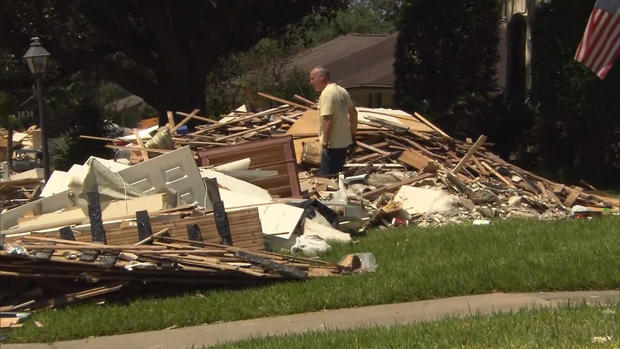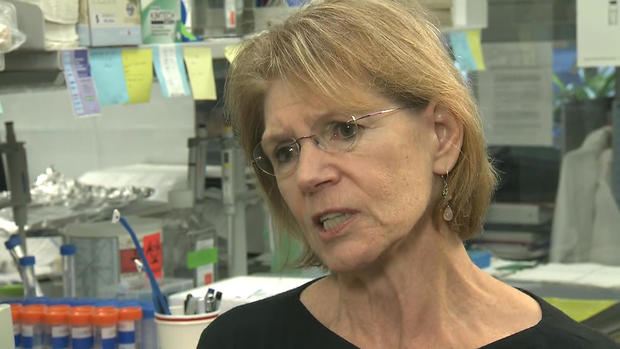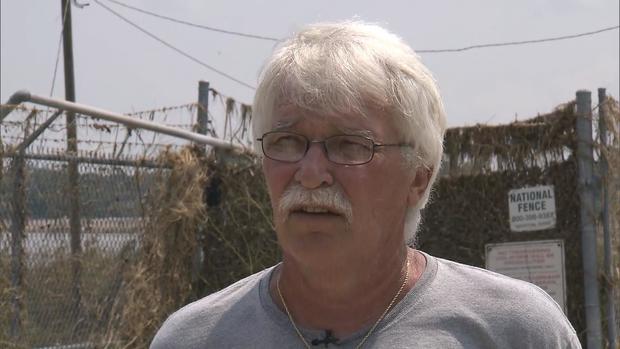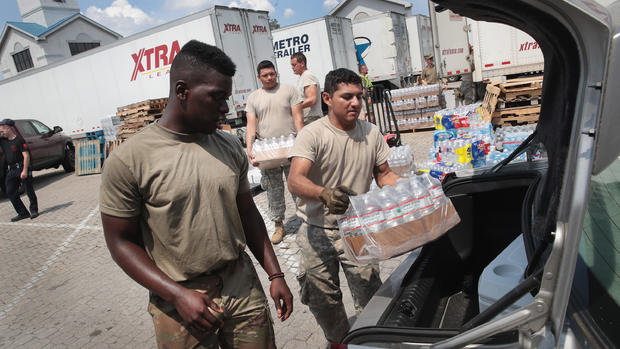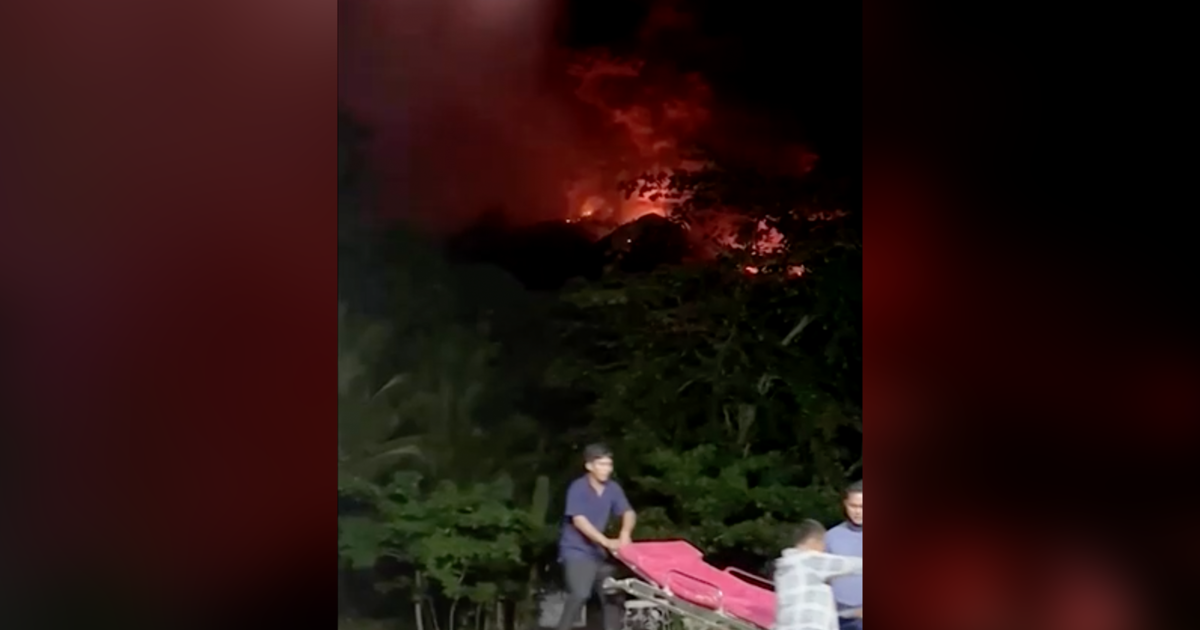Weeks after Harvey, floodwaters still pose threats to Houston residents
HOUSTON -- Nearly three weeks after Harvey drowned Houston, people like Mike Gregg are still digging through the debris, and realizing just how much they lost.
Two feet of water soaked everything, including the family piano.
"It was my wife's," Gregg said. "Something that was very valuable to her."
Life remains difficult for many. Five thousand are still sleeping in Red Cross shelters, and more than 130,000 properties are damaged. Overall, some 223,000 people have applied for federal Harvey assistance, with $305 million already approved.
But what lies beneath the floodwaters is becoming a growing concern, reports CBS News correspondent Omar Villafranca. Along with exposure to mold, toxins are floating around, too.
Tests of floodwaters conducted by Baylor College of Medicine and Rice University show some neighborhoods are contaminated with lead and arsenic, as well as bacteria like E. coli, which was found in one area at levels 135 times what's considered safe.
Baylor College's Dr. Winifred Hamilton, who helped lead the research, said the issue was worse inside homes.
"We're seeing bacteria levels that are roughly 20 times, sometimes 30 times, higher than what we're seeing right outside the same place," Hamilton said.
"Is it going to get worse?" Villafranca asked.
"Yes, I think so," she replied.
There are also 43 toxic Superfund sites around Houston, and the EPA said two need further evaluation, including one half a mile from Greg Moss's home. He's worried about any runoff from there.
"And what would that do to your property?" Villafranca asked.
"It's gonna poison it some more," Moss said.
Another concern are the mosquitoes that breed in stagnant pools of water and carry diseases like Zika and West Nile. Spraying has begun in some neighborhoods, but because there's still flooding in others the spray trucks can't get to. They'll have to do that decontamination by air.
